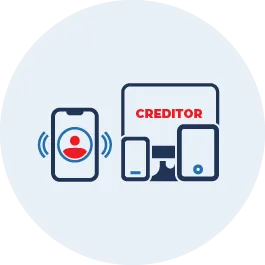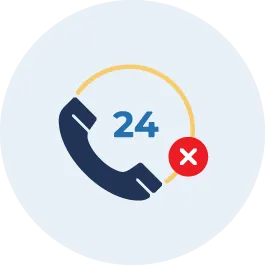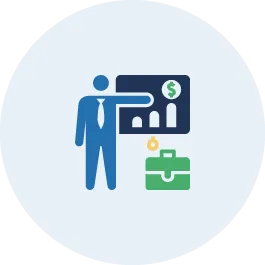Who Are Debt Collectors?
A debt collector is an individual or organization that works to recover funds on an account that is past-due on payments. Creditors often sell your debts to outside debt collection companies, though in some instances creditors have their own debt collection departments. Some debt collectors are paid on commission or sometimes will receive a percentage of funds collected. While there are regulations in place to protect consumers, sometimes abuse will occur, making it essential to understand your rights.

Prohibited Practices
Debt collectors may not harass you over the phone, text message, email, or social media. In addition, debt collectors may not harass anyone else in an attempt to contact you.

Debt collectors may not contact you at an unusual time or place, or at a time or place they know or should know is not convenient for you. Contact before 8:00 a.m. or after 9:00 p.m.in the consumer’s time zone is prohibited under the Fair Debt Collection Practices Act (FDCPA).

If a debt collector contacts you using email, text message, or another electronic medium, they must offer a reasonable and simple method for you to opt out.

If a debt collector knows an attorney is representing you regarding the debt, the debt collector should stop contacting you and start contacting your attorney directly. Provide the debt collector the name and phone number of the attorney and tell them to contact your attorney directly.

Acceptable Communication Practices
If you do not have an attorney representing you, a debt collector may contact other people only to find out your current address, phone number, and where you work.
A debt collector may not use social media to publicly post a message to you about a debt you owe, but may send you a private message, unless you request that they not contact you using social media.

Written Notice Describing the Debt
A debt collector must send you a written validation or notice about the debt. The notice must include the name of the creditor to whom you owe the money, and what action to take if you don’t think you owe the money. A debt collector must give this notice within five days after the first communication with you. When you dispute a debt or ask for verification – in writing – the debt collector must stop contacting you. You must send the letter within 30 days after receiving the validation notice.
Remember, a collector may resume contacting you if it sends a written verification of the debt owed.
Responding to a Debt Collector or Failure to Pay
If you are unable to repay a debt immediately, or don’t think you owe the debt, you can write the collector and tell them to stop contacting you. Make a copy of your letter and send the original letter by certified mail with “return receipt” requested, so you’ll be able to document your action. The Consumer Financial Protection Bureau (CFPB) has prepared sample letters you can use to respond to a debt collector. Keep in mind, if you truly owe the debt, sending a letter will not get rid of the debt. The creditor or the collector can still file a lawsuit to collect the debt.
Alleged Violation of Your Rights
You can file a complaint about a third-party debt collector to the Consumer Financial Protection Bureau (CFPB) by using its online complaint form or by calling (855) 411-2372.
You can file a lawsuit against a debt collector if you think your rights under federal law have been violated. You have one year from the date of the violation to take this action.
You might be able to join others as part of a class action lawsuit against a debt collector and recover money for damages. Many states have their own debt collection laws that are different from the federal law. Contact your state Attorney General’s office for help in understanding your rights and the steps to take for an alleged violation.

Frequently Asked Questions
- Add Up Monthly Debt Payments: Include all your monthly debt obligations such as your: mortgage or rent payments; student, auto, and personal loans; other loans; credit card payments, child support payments that you make; alimony payments that you make; and any other monthly debt payments. Living expenses such as utility bills, food, and entertainment are not typically included.
- Add Up Gross Monthly Income: Your gross monthly income includes the total amount of money you receive in a month from all sources before taxes and other deductions. Income includes earnings from your employment as well as other sources.
- Divide and Multiply: Divide your total monthly debt payment by your gross monthly income then multiply by 100 to get a percentage.
Example: If your total monthly debt payments are $1,500 and your gross monthly income is $5,000, your DTI is 30%. This means that 30% of your gross monthly income goes towards paying debt. Knowing your DTI is important for keeping track of your budget. Lenders may also look at DTIs to assess a borrower’s credit worthiness.
Paying only the minimum payment on a credit card often doesn’t significantly decrease the amount due because of the way interest and fees are applied. Here are the main reasons.
- Interest Accumulation – When you make only the minimum payment, a large portion of that payments goes toward interest rather than the principal balance. This means the actual debt amount decreases very slowly.
- Fees – If your account has any fees, such as late payment fees or annual fees, these can add to your balance. Paying only the minimum may not cover these fees causing your balance to remain high or even increase.
- High Interest Rates – Credit cards often have high interest rates. Even if you make the minimum payment, the interest charged on the remaining balance can be substantial, offsetting the reduction in the principal.
- Continued Spending – If you continue to use the credit card while making only minimum payments, new charges will add to your balance, making it difficult to see a decrease.
Example: If you have a balance of $1,000 with an interest rate of 13% and make a minimum payment of 2% ($20), a significant portion of that $20 will go toward interest, leaving a small amount to reduce the principal.
Debt consolidation is a way to combine all of your debts into a single loan with one monthly payment. A debt consolidation loan can offer several benefits, particularly if you struggle to manage multiple debts with varying interest rates and payment schedules. Here are some key advantages.
- Single Monthly Payment – Instead of juggling multiple payments to different creditors, you make just one monthly payment to the consolidation loan provider.
- Lower Interest Rates – If your consolidation loan has a lower interest rate than your current debts, you can save on interest over time.
- Fixed Repayment Schedule – Most debt consolidation loans come with fixed terms, so you know exactly how much you need to pay each month and when you have paid your debts in full. Also, you can pay off your debt faster than you would by continuing to make minimum payments on multiple accounts.
- Improved Credit Score – Using the loan to pay off credit card balances and reduce your credit utilization ratio can positively impact your credit score.
- Reduce Stress – Handling multiple debts can be overwhelming. Consolidating them into one loan reduces the number of accounts you need to keep track of, helping to ease financial anxiety.
- Better Financial Management – A debt consolidation loan can provide a clearer path to becoming debt-free, as you will have a defined repayment plan and a specific timeline for paying off your debt.